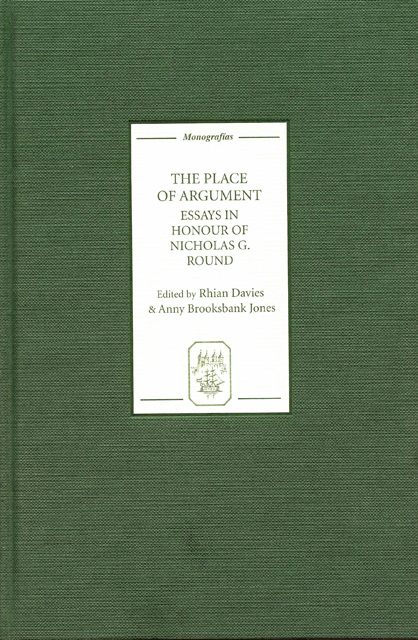Introduction - Celebrating Nick Round
Published online by Cambridge University Press: 10 May 2023
Summary
It is a truism of contemporary publishing that the mark of a strong collection of academic essays is its coherence. The Oxford English Dictionary reflects this term’s deployment in several quite different ways, according to context: it foregrounds the action or fact of sticking together, logical connection, propriety and consistency, the harmonious connection of the several parts of a discourse. For the generality – but thankfully not the totality – of publishers, however, it is generally reserved for the precise congruence of a set of essays with a designated target readership. It has been something of a challenge, then, to assemble a coherent Festschrift in honour of a colleague with the exceptional scholarly range and intellectual energies of Nicholas Grenville Round.
Nick Round, as he is universally known, graduated from Pembroke College, Oxford, with a double first in French and Spanish in 1959, completing his DPhil – a monumental study of fifteenth-century converso translator Pero Díaz de Toledo – eight years later. From 1962 to 1972 he taught Spanish, first as Lecturer, then as Reader, at Queen’s University Belfast, before taking up the Stevenson Chair of Hispanic Studies at the University of Glasgow. There he remained until 1994, when he left for the Hughes Chair at Sheffield, becoming Emeritus Professor after his retirement in 2003.
This was a relatively settled career by today’s standards. His scholarship, by contrast, ranged prodigiously. A true polymath, his standing as one of the most erudite academics of his generation is evidenced in books, pamphlets, articles and translations that range with seamless authority from the medieval to the contemporary periods, through narrative, drama and poetry, history and philosophy, translation, linguistics and pedagogy. There are, in this sense, many Nick Rounds. For some, he is a medieval and early-modern historiographer of consummate intelligence, or the author of scholarly studies of Fernando de Rojas and Juan Ruiz characterized by penetrating textual and contextual insight.
- Type
- Chapter
- Information
- The Place of ArgumentEssays in Honour of Nicholas G. Round, pp. ix - xviiiPublisher: Boydell & BrewerPrint publication year: 2007



